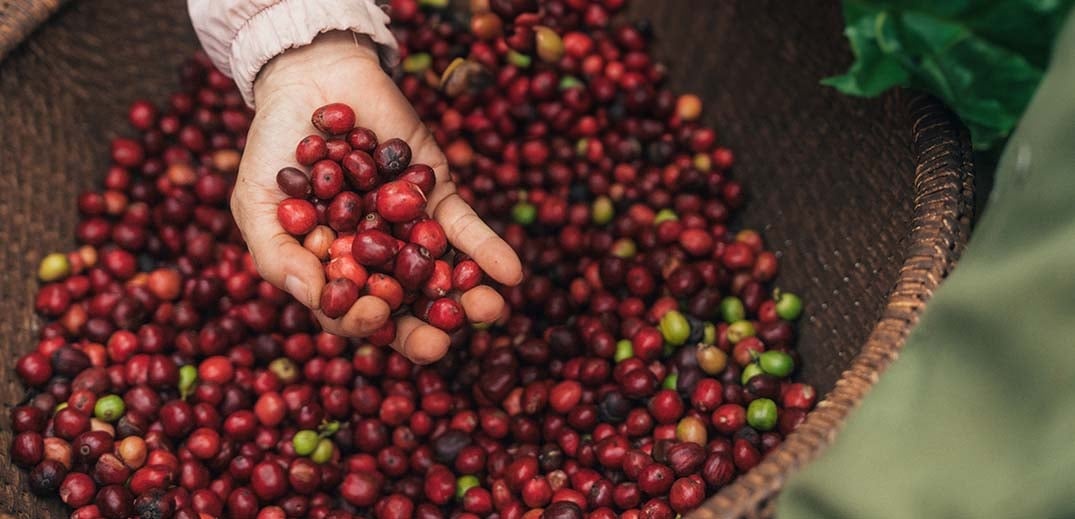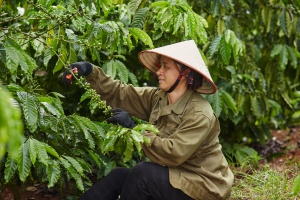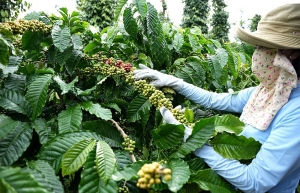Nescafé report shows increased uptake on regenerative agriculture, higher productivity and reduced GHG emissions
 |
In 2023, over 20 per cent of Nescafé's coffee was sourced from farmers implementing regenerative agriculture practices. This data is based on the monitoring and impact assessment provided by the Rainforest Alliance across farming groups in 11 coffee-growing countries, from where Nescafé sources its coffee.
Farmers in countries such as Honduras, India, Philippines, Thailand, and Vietnam achieved a 5 per cent to 25 per cent increase in coffee productivity per hectare compared to 2022. Key practices that contributed to this increase included optimised fertilisation and mulching.
The implementation of these practices also led to a reduction in GHG emissions ranging from 15 per cent to 30 per cent. In 2023, the Nescafé Plan distributed 21 million coffee plantlets to farmers to help renovate and rejuvenate coffee plots and improve productivity in coffee origin countries.
Philipp Navratil, head of Nestlé's Coffee Strategic Business Unit, said, "The Nescafé Plan embodies our unwavering commitment to help secure the future of coffee. This is at the heart of Nescafé. This second progress report is a testimony to the work we do every day on the ground with our partners, suppliers, and farmers, in the regions from where we source our coffee, and it motivates us even more to continue our efforts."
Prioritising knowledge transfer and expertise building is essential to increase the uptake on regenerative agriculture. In 2023, more than 140 000 coffee farmers across 16 coffee origins received comprehensive training in regenerative agriculture practices as well as technical assistance. In Honduras, for example, 12 000 younger generation coffee farmers received training on entrepreneurship, quality, and regenerative agriculture, supporting the next generation of farmers to manage their farms more productively.
Recognising the importance of peer-to-peer learning, the Nescafé Plan has launched an innovative online platform called Agrinest. This platform aims to connect farmers from around the world, facilitating knowledge sharing and collaboration. Currently, more than 1,600 farmers in Vietnam and 240 farmers in Indonesia are actively using Agrinest, with a growing trend of participation expected in the coming years.
Nestlé has also contributed to the Regenerative Agriculture for Low-Carbon and Resilient Coffee Farms - A Practical Guidebook. This guidebook, created in collaboration with the Alliance of Bioversity International and the International Centre for Tropical Agriculture, provides field agronomists, trainers, and professionals working with coffee farmers with a set of best practices that they can use and adapt to different farming contexts, helping farmers transition to regenerative agriculture. The guidebook is publicly available to the coffee sector.
In Vietnam, since 2011, the Nescafé Plan has been implemented by Nestlé Vietnam in the Central Highlands in cooperation with the Ministry of Agriculture and Rural Development, the Central Highlands Institute of Agriculture and Forestry Science, and Technology, and local agricultural extension centres to support coffee farmers practising regenerative agriculture.
The programme has conducted more than 355,000 training sessions on sustainable coffee farming, and donated seedlings to an average of over 10,000 households each year during 2011-2023. It has also distributed more than 74 million high-yield, pest- and drought-resistant seedlings to replant old coffee areas.
By applying regenerative agriculture coffee farming methods, the programme has helped farmers save up to 40 per cent of irrigation water, reduce chemical fertiliser and pesticide use by 20 per cent, and increase incomes by 30-100 per cent.
The programme has also set up 274 farmer groups, of which more than 30 per cent are led by female farmers, helping them receive formal professional training and then impart that knowledge and inspire the farming community to implement sustainable agricultural production.
 | Nestlé’s best practices in regenerative agriculture The introduction of regenerative farming methods needs to be promoted. Pham Phu Ngoc, Agro Service manager at Nestlé Vietnam, writes about how this must include biodiversity enhancement, soil and water conservation, and livestock integration. |
 | Nestlé claims top spot in 2023 Coffee Brew Index Nestlé ranked first in terms of coffee sustainability in the new 2023 Coffee Brew Index that was published in the Coffee Barometer report. |
 | Nestlé supports farmers to advance regenerative agriculture More than one-third of global anthropogenic greenhouse gas (GHG) emissions come from agriculture, and the sector also accounts for 70 per cent of global freshwater withdrawals. Therefore, transitioning from traditional farming methods to low-emission, regenerative agriculture is considered one of the most important solutions to respond to climate change and contribute to the development of sustainable food systems. |
What the stars mean:
★ Poor ★ ★ Promising ★★★ Good ★★★★ Very good ★★★★★ Exceptional
Related Contents
Latest News
More News
- Honda launches electric two-wheeler, expands charging infrastructure (January 12, 2026 | 14:00)
- Vietnam striving to ease air pollution (January 09, 2026 | 14:41)
- Petrovietnam Gas awards first multi‑year LNG deal to Shell (January 09, 2026 | 14:38)
- Advancing the net-zero journey: Carlsberg Vietnam’s sustainability progress in 2025 (January 09, 2026 | 09:49)
- The green hydrogen and ammonia future for Vietnam (January 06, 2026 | 15:03)
- Green transition to close $20 billion annual investment gap (December 31, 2025 | 11:59)
- Australia contributing to Vietnam’s climate change responses (December 30, 2025 | 11:37)
- CME Solar strengthens position in Vietnamese renewables (December 30, 2025 | 11:21)
- Self-care signals shift towards sustainable healthcare (December 30, 2025 | 10:12)
- GreenYellow marks five years of clean energy growth in Vietnam (December 26, 2025 | 15:51)

 Tag:
Tag:





















 Mobile Version
Mobile Version